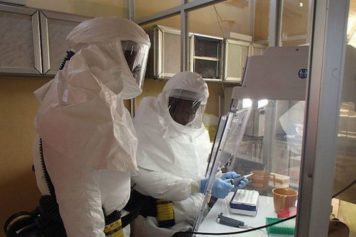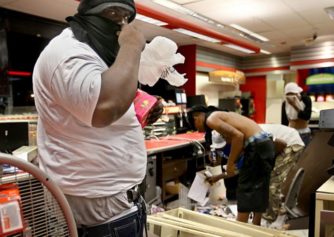West African countries are fighting a deadly war.
On Tuesday, the World Health Organization announced an official death toll of 1,200 victims from the Ebola virus. The deadliest outbreak of the virus on record is threatening the stability of the hardest-hit countries of Sierra Leone, Liberia, Guinea and now Nigeria.
However, this number is still a conservative estimate, given the amount of fear and paranoia that has prompted many West African communities into hiding their sick relatives.
A Liberian clinic in the nation’s capital was raided by community members, and about 17 patients, including children, were carried away along with items such as mattresses, sheets and equipment that were used for the patients. A fair number of people, and this crowd in particular, believe that the Ebola epidemic is a hoax.
As the death toll climbs, it is evident that West African countries are facing a war that doesn’t have a clear enemy. On one hand, there is the microscopic agent, which doesn’t have a cure or vaccination. On the other, there are the citizens who aren’t educated or may not completely understand the scope of the situation.
Finding some sort of pharmaceutical remedy may take until 2015, according to a spokesperson from Mapp Biopharmaceutical, the San Diego company that made the experimental drug ZMapp to combat the disease. But to educate a populace of tens of thousands, or even millions, can take a generation. And in the meantime, the crisis has already restricted travel and trade to and from these countries, threatening their financial security as well as impacting food supplies. Companies are also scaling down their efforts and sending nonessential employees home.
This crisis could become bigger than a health epidemic. It could cripple Liberia’s or Guinea’s economies and societies if leaders do not find a way to contain the spread of the virus by educating the community about the disease and how to protect themselves. Many news outlets report that radio programs and health ministers are making announcements or new pamphlets are being created. But how effective are they to solving the problem of fear and propaganda?
Let’s be honest, if we have an adult woman who has lived in a rural village all her life without access to television or the Internet, how easily would she be able to digest public health information? To trust an outsider knocking on her door, telling her that her 6-year-old son lying in bed needs to travel 100 miles to get to a center where he will be isolated until uncertain death?
Traveling 100 miles in some places could take days, between walking and hitchhiking, to get to if she wanted to visit. For those living in the capitals, where they do have very limited access, the resources are slim. Liberia has one doctor for every 100,000 people, and Sierra Leone has two for every 100,000. This is in comparison to the United States, which has one doctor for every 300 people.
The war that West African countries are fighting is not with Ebola, but with poverty. Dire and systemic poverty. It has taken the lives of many, and Ebola is just one of the latest challenges that leaders and nongovernmental organizations on the ground are dealing with to mitigate the circumstances. But at the end of this epidemic — this battle — Africans are still losing the war.
S.C. Rhyne is a blogger and novelist in New York City. Follow the author on Twitter @ReporterandGirl, http://Facebook.com/TheReporterandTheGirl and visit her website at http://www.TheReporterandTheGirl.com


